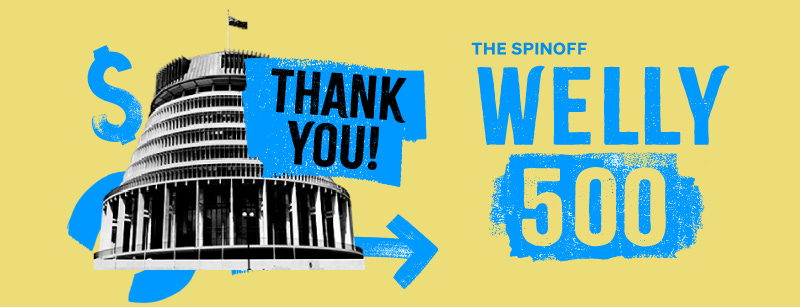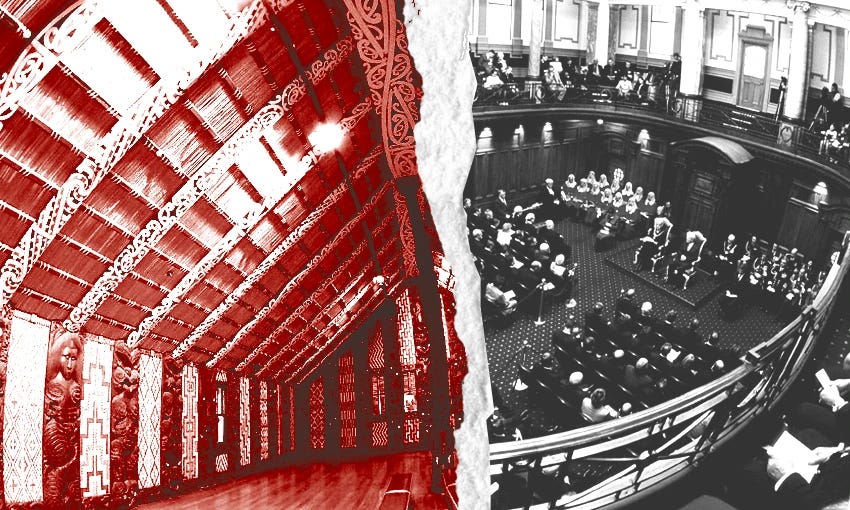Mōrena, and welcome to The Bulletin for Thursday, June 6, produced in partnership with Blind Low Vision NZ.
In today’s edition: What proposed changes to the Holidays Act could mean for you, the first debate between Rishi Sunak and Keir Starmer has taken place, and is Mfat safe from a cyberattack? But first, the future of greyhound racing will soon be decided.
An impending decision
Two weeks ago, Newshub’s tireless investigations reporter Michael Morrah obtained a government briefing paper suggesting a call would soon be made on the future of greyhound racing in New Zealand. It was reported that racing minister Winston Peters would decide the future of the industry “within weeks”. While that decision hasn’t yet been made – at least publicly – it must certainly be due soon. And with renewed calls in recent days to outlaw racing, following more deaths on the racetrack, this morning we’re going to look at how we got here, and where we might end up.
On ‘thin ice’
In his May 19 report, Morrah said it was “no secret that greyhound racing is on thin ice”. He’s right, though the debate over the industry is nothing new. In 2017, a major report uncovered the high number of dogs being injured or killed on race tracks. It showed more than 2,000 dogs had been injured, and 165 put down, directly due to racing over the previous three seasons. In the same year, another Newshub report revealed a top greyhound trainer was being investigated for allegedly using live baits – as in, live animals – to train his racing dogs, something that’s illegal. By 2021, the former government had launched a review into greyhound racing, the third in a decade. "It is the responsibility of the industry to hold itself accountable and ensure the best possible standards of welfare for greyhounds,” said the former racing minister Grant Robertson. The report from that review found three issues that needed to be addressed, one of which was “animal welfare generally”. The industry was put on notice and given until the end of 2022 to up its game. But while a subsequent report by the Racing Integrity Board was critical of the greyhound racing industry in its current form, the last government never made any decisions before the election.
The arguments for a ban
It’s perhaps unnecessary to even canvas these given the stories referenced above. Nevertheless, animal activists have been vocal about the need to protect greyhounds from the harms of the industry. "Injuries and deaths keep piling up, no matter the track,” said a spokesperson for charity Safe in late March after a spate of deaths and injuries prompted a five-week race suspension at Manukau Stadium. “The government must recognise the urgency of this issue and intervene decisively." This week, the charity told Newshub’s AM there had been “over 2,500 injuries, including 272 broken bones and now 26 deaths” in the years since the industry was put on notice. In May, the SPCA published an open letter urging government action and cited a poll commissioned by the charity that showed 74% of New Zealanders favoured a ban.
The industry has, in response, defended its social license to operate. Greyhound Racing NZ said in a statement last month there were no grounds for a ban. “The sport has made significant progress in recent years, especially in the animal welfare space. GRNZ is committed to ongoing improvement, and will continue to put significant time and resources into ensuring that animal welfare is at the heart of everything the industry does.”
What might happen
It’s hard to say for sure. While failing to do anything in government, Labour has since joined the Greens in calling for a complete ban. On the campaign trail, Christopher Luxon promised to ban greyhound racing, reported The Press, spooking industry reps that may have been banking that a change of government would stop any crackdown. The prime minister has since reaffirmed that position, as The Post’s Thomas Manch reported in March. But the decision doesn’t squarely lie with him, as Manch’s report noted, because the current racing minister is Winston Peters. Back in 2019, during his last stint as racing minister, Peters pledged to “clean the industry up” after the live baiting scandal. Jump forward to now, and as we wait for his final call, Peters has remained coy on whether he will endorse the view of the prime minister. "Well, [Luxon’s] got a minister now who knows more about it than he does, and I'm on the case, alright?“ Peters told reporters in March.
A good day in the capital
Thank you to everyone who supported The Spinoff Welly 500 over the last couple of weeks. Not only did we reach our target in record time, but the additional donations and messages of support make it possible for us to sustain and grow our work in Wellington. You can check out our recent Welly coverage here.
Proposed changes to the Holidays Act, but is it breaking another promise?
The government has announced proposed changes to the Holidays Act it claims will simplify the system for employers. 1News has the key details here, reporting that consultation will be carried out on the changes, which include “a proposed approach to pro-rating sick leave, to better reflect how much an employee works” and “shifting to an accrual system for annual leave entitlements”. These changes, especially around sick leave, could particularly impact part time workers, reported Newshub’s Isobel Ewing. On the campaign trail, Luxon ruled out changing sick leave entitlements. The proposed changes have prompted claims of another broken promise by the coalition, following the decision not to fund the 13 promised cancer drugs. The Spinoff’s Alice Neville has a helpful timeline of that saga here, from the announcement being made through to the post-budget fallout.
Meanwhile, Politik’s Richard Harman (paywalled) has details this morning of what he has labelled another broken health promise. He’s reported that the government will now train an additional 25 medical students next year rather than the 50 it promised. And writing for the Herald (paywalled), Nicholas Jones has details of an open letter urging the coalition to honour a pre-election pledge to the 21,000 New Zealanders with blood cancers.
Why Mfat could be vulnerable for a cyberattack
BusinessDesk’s Dileepa Fonseka (paywalled) has reported this morning that the Ministry of Foreign Affairs could be a “sitting duck” for a cyber attack. According to several sources within the IT industry and the government, many of the ministry’s computer systems are not being “properly monitored” and a number of cybersecurity staff have recently been let go. But the ministry won’t comment, telling Fonseka it would not respond to allegations “based on leaks”. It did, however, say it was “confident” that it had appropriate measures in place to monitor its current systems.
How Slack's design lead is building the future of work
World class tech requires world class design. Adobe, Google, Airbnb, Uber, and Slack are some of the most influential companies of our time. Ethan Eismann has been a design leader at all of them.
As part of the Spark Business Lab Future State festival, Ethan shares his creative approach to business, insights on how to build great design culture, and stories of how he's grown his career. Listen now for world class advice from a world class leader. (sponsored)
Click and Collect
Andrea Vance continues her excellent reporting in The Post about the allegations against Te Pāti Māori over the use of private data for electioneering.
I highly recommend this substantive column by Duncan Greive in The Spinoff this morning on David Seymour and his views on the media. It’s balanced and very interesting.
We talked a bit about Covid-19 and the new wave last week. Stuff has broken down the latest numbers.
The first debate between UK prime ministerial hopefuls Rishi Sunak and Keir Starmer took place yesterday morning, and was electric viewing. The BBC has a breakdown of what happened, while a snap poll after the debate revealed how viewers felt.
It feels like the craft beer boom has calmed a bit in recent years. This piece in The Post looks at why it’s a tough time to be a brewery – and asks whether people are turning back to cheaper beer.
It’s always worth reading Mark Jennings’ writings on the media. He’s taken a look at what’s happening with Mediaworks.
If you haven’t already subscribed, here’s the latest edition of The Spinoff’s newsletter Future Proof. It’s a good read.
Are you a “font geek” or a “craft freak”? Daylight is looking for a new senior designer. Find out more here.
Liam Rātana looks at the arguments for and against a Māori parliament. Claire Mabey reveals who is on the shortlist for the 2024 NZ Book Awards for Children and Young People. Gabi Lardies interviews Will Alexander, who was willing to die for the people of Palestine – but has now ended his hunger strike. A Wellington twenty-something describes their sitcom life, where flat dinners are focused on rounds of layoffs and tax cuts.
That’s it for this morning, thanks for reading. I’ll catch you back tomorrow.
Got some feedback about The Bulletin, or anything in the news? Get in touch with me at thebulletin@thespinoff.co.nz.
If you liked what you read today, share The Bulletin with friends, family and colleagues.

















